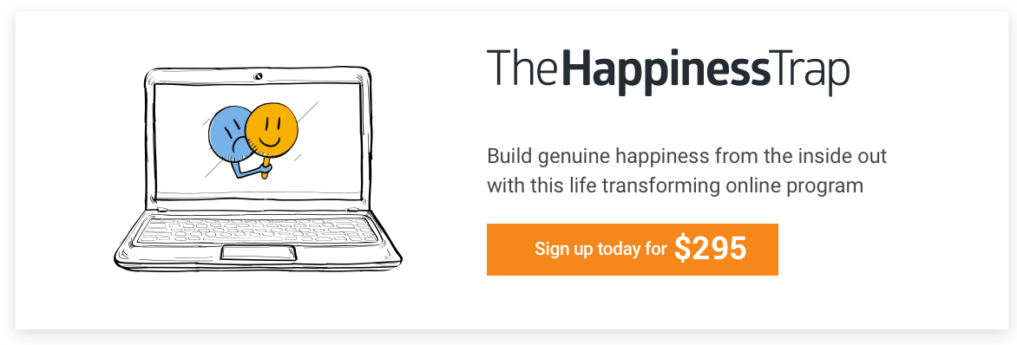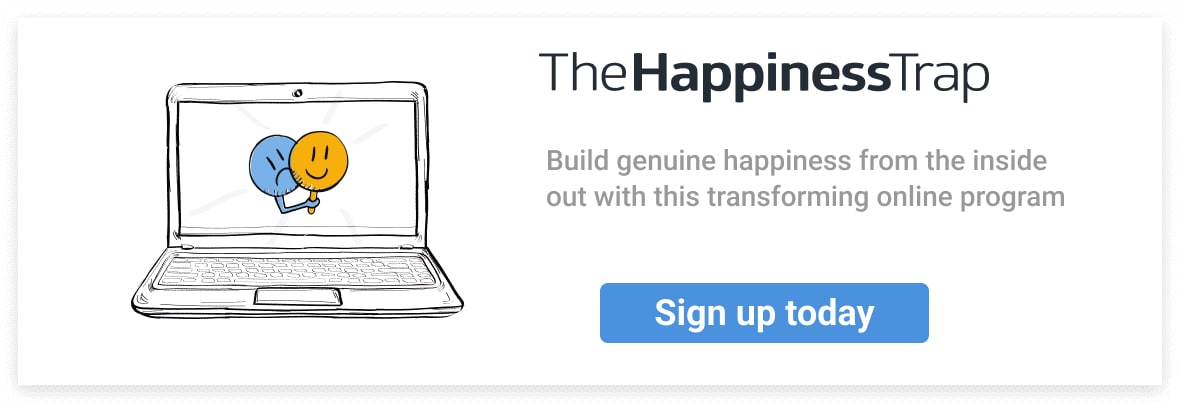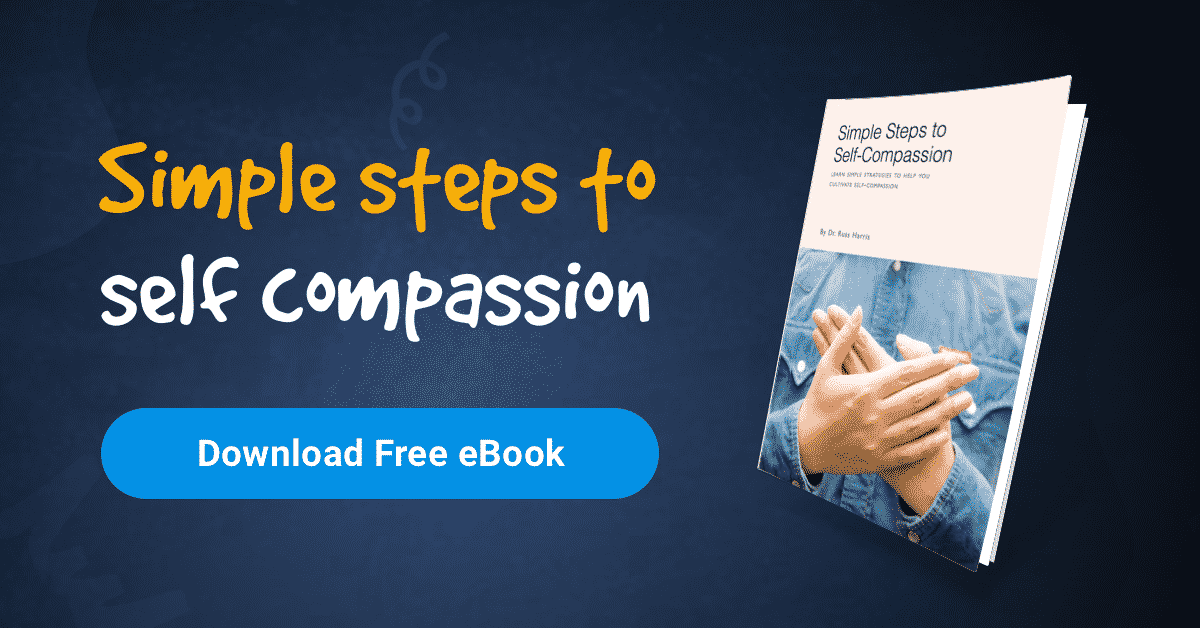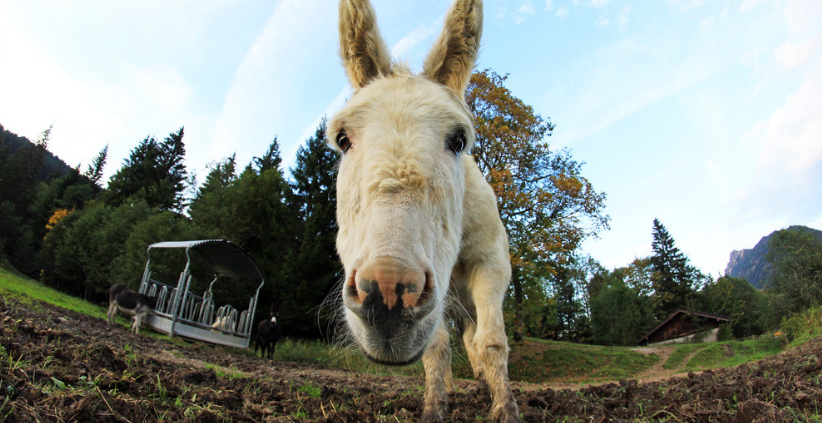

We say ‘happy holidays’, but the truth is, for many of us the festive season is a less-than-perfect mixture of both delight and dread. I, for one, have had plenty of holiday misery over the years – from difficult divorces (first my parents, then later my own!) to deaths of loved ones to family feuds, and so on.
Let’s face it: when the holidays happen, there are many potential sources of stress and suffering. For some people it’s a time of great loneliness; for a whole host of reasons you may feel cut off, disconnected, or isolated from others.
For other people, it’s a time of grief – especially if a loved one is very sick or dying, or if it’s the first Christmas since they died. And for almost all of us there are the perennial stresses of buying gifts (what to get, how much to spend, will they like it or not?), challenging social events (difficult relatives, family arguments, drunken revellers), competing family demands (with whose family members, on which days, do you celebrate what?) or just grappling with the logistics of hosting a feast.
For most of us, there’s a pretty big gap between the ‘festive season’ that’s promoted in popular culture – happy, harmonious friends and families, enjoying a blissful gathering – and the one that we get to experience in real life. And this in itself easily leads to frustration and disappointment, on top of all those other forms of stress.
So, what can we do to make the most of the holiday season while handling the stress that inevitably goes with it? Well, to quote the author H.L. Mencken,
‘For every complex situation, there is an answer that is simple, clear and wrong’. Wise words, huh? So, I’m not going to even attempt a simple answer. There just isn’t one.
Instead, what I’m going to suggest is a simple practice; something that can help you cope when the going gets tough. What I have in mind is the practice of ‘compassion’ – which basically means, to acknowledge suffering and respond with kindness.
Throughout the holiday season, when life is hard, acknowledge it. Pause for a moment, and truly acknowledge your difficulties and disappointments, and all the unpleasant feelings that go with them. Acknowledge, openly and honestly that it’s painful.
And then respond to your pain with genuine warmth and kindness; treat yourself like you would treat someone you love, if they were in a similar situation. (For more on how to do this, read my previous blog, The No BS Guide To Self-Compassion
Of course, practicing self-compassion won’t magically make your holidays into ‘happy, happy, happy’! But it will help you to cope with the challenges better.
And at the same time, look for opportunities to be compassionate to others. After all, they too are likely to be struggling.
And if you can reach out to your loved ones during those difficult times, and be there for them in a kind and supportive way, one of the greatest gifts you can ever give. As the ancient philosopher Philo put it: ‘Be kind, for everyone you meet is fighting a hard battle.’
Imagine you’re going through a rough patch, one of the toughest ordeals you’ve ever had to cope with in life. You’re facing all sorts of challenges, obstacles, difficulties. It’s painful and stressful, and there’s no quick fix or easy solution. Now, as you go through this, what kind of companion would you like by your side?
The kind of companion who says, with a cold, uncaring voice, “Suck it up, princess. I don’t want to hear your whingeing and whining. What have you got to complain about? There are starving kids in Africa, this is trivial.
What’s wrong with you? Why are you so weak? Just shut up and get on with it.”? Or the kind of companion who says, with a kind and caring voice, “This is really tough. And I want you to know, I’ve got your back. I’m going to help you get through this. I’m with you every step of the way.”?
It’s a no-brainer, right? All of us – even super tough men and women who work in the armed forces and emergency services – would choose the second companion over the first. What this second companion demonstrates is a quality called “compassion” – which means ‘acknowledging the suffering of others and responding with kindness and caring’.
Sadly, the truth is, most of us are a lot better at being compassionate to others, than we are to ourselves. When we are in pain, we often treat ourselves a lot more like the first companion than the second. Self-compassion means learning to treat ourselves like the second companion: acknowledging our own suffering and responding to ourselves with kindness and caring.
In other words, self-compassion means treating ourselves with the same warmth, caring and kindness that we’d extend to someone we love or deeply care about, if they were in similar pain.
For thousands of years, self-compassion has played a central role in many religious and spiritual practices, and now it is becoming increasingly important in many science-based models of therapy, coaching and counselling.
Certainly, it is implicit in every aspect of the evidence-based Acceptance & Commitment Therapy model, upon which The Happiness Trap Online Program is based.
A wealth of research shows the many benefits of self-compassion with everything from depression and anxiety disorders to grief, trauma and addiction, to dealing with stress and pressure in the workplace.
Self-compassion helps you to cope better with stress, anxiety and pressure, to bounce back from failures and setbacks, to cope better with grief and loss, and to handle any type of emotional or physical pain more effectively.
So it’s well worth knowing how to develop it in yourself. And if you’re worried that it’s going to involve meditation or a religious practice of some sort, rest assured: it doesn’t.
Although there are all sorts of mediative and religious practices that can be used to develop self-compassion, there are also many other ways that are arguably a lot simpler.
There are two basic steps to self-compassion:
- Acknowledge your own suffering.
- Respond to yourself with kindness and caring.
The easiest place to begin is with a simple thought experiment. If you wanted to be compassionate to someone you love, who comes to you in great pain, tells you how much they are suffering – what are some kind words you might say to them?
What are some kind things you might do for them? Whatever your answers are to those questions, apply them to yourself. Try saying the same kind words to yourself, and doing the same kind things for yourself, that you’d do for someone you love.
Of course, there’s much more to self-compassion than this, and I’ll be exploring other aspects in future blogs. But this is a good place to start. So next time you’re suffering, acknowledge it, and respond with kindness. This doesn’t come naturally to most of us – but it’s a skill that’s well worth making the effort to develop.
I’m guessing you’ve got a pet donkey to help carry your goods to the marketplace (unless you’ve upgraded to a camel). Now, what’s the best way to motivate your donkey? To whip it with a stick? Or to offer it a carrot?
Both methods will get your donkey to carry the load for you. But over time, the donkey that is mainly motivated by whipping will get more and more miserable, battered, and bruised, whereas the donkey motivated by carrots will be healthy and content (and have really good night vision).
Now, as it happens, humans have a lot in common with donkeys (some more than others!). And unfortunately, when we try to motivate other humans to behave the way we want, we often use far too much of the stick and nowhere enough of the carrot.
The stick takes many forms. It can include criticizing, judging, demanding, insulting, threatening, or intimidating. It often involves sharing or blaming or evaluating the other person negatively or speaking in harsh words.
And it frequently involves deliberately withdrawing things that we know the other person wants, such as affection, caring, warmth, kindness, gratitude, company, or “someone to listen”.
The technical psychobabble jargon term for “using the stick” to motivate others is “coercion”. We all have a natural tendency to rely on coercion because…well, the fact is it very often works.
Very often, when we use coercion with others, we get our needs met. They do what we want them to do. But what effect does coercion have in the long-term? How does it affect your relationship with the other person – whether it’s your friend, your child, your partner, your employee?
The research on this is clear. The more we rely on coercion, the worse the relationship gets. The more coercive the parent, the more stressed and unhappy their children. The more coercive the manager, the more stressed and depressed their employees. The more coercive the spouse, the worse the condition of the marriage.
Just as big sticks make donkeys sick and miserable so does coercion create stressed, unhealthy humans.
So what’s the alternative? You guessed it: Carrots! Lots and lots and lots of carrots!
Just like the stick, a carrot can take many forms. Carrots include kindness, gratitude, thank you, talking calmly, being respectful, warmth, openness, caring, open-mindedness, genuine interest in the other person, understanding, empathy, compassion, etc.
Basically, the aim is to catch the other person behaving the way you want and actively reward them for doing so. The reward may be anything from a smile, a “thank you”, a pat on the back, to a gift wrapped boxed set of Game of Thrones Seasons 1 to 5.
“Hang on”, you may be thinking “I shouldn’t have to thank them, or smile at them, or be kind to them – they should just do it!”
It’s completely natural to have such thoughts – and if you don’t care about the long-term quality of the relationship and the health and wellbeing of the other person, then sure – stay with this stick. But if you want better relationships and you care about the health and wellbeing of your friends, employees, managers, co workers, children, partner, parents, etc., then best start shifting to the carrot.
The magic ratio of carrot to stick is at least 5:1. In other words, at least 5 times as much of actively rewarding the behavior you like as trying to punish the behavior you don’t like. This doesn’t come naturally for most of us, but it’s a habit well worth developing!






